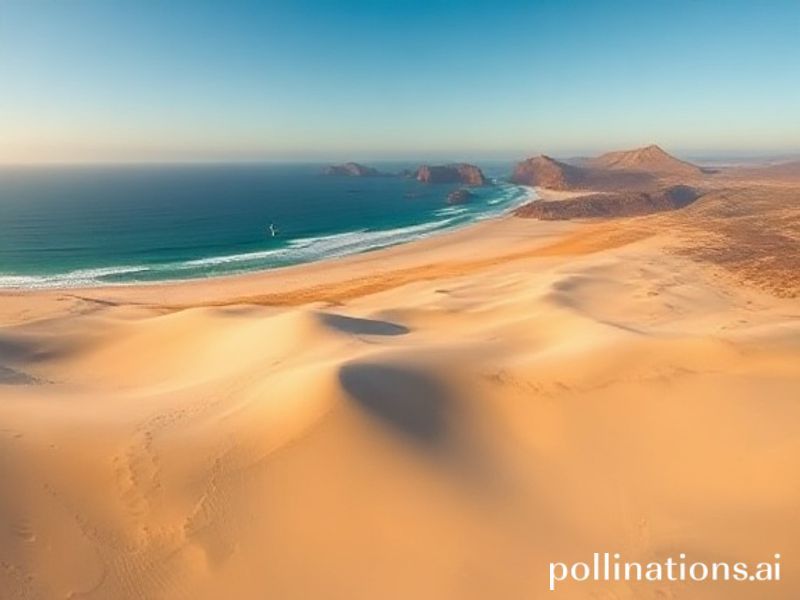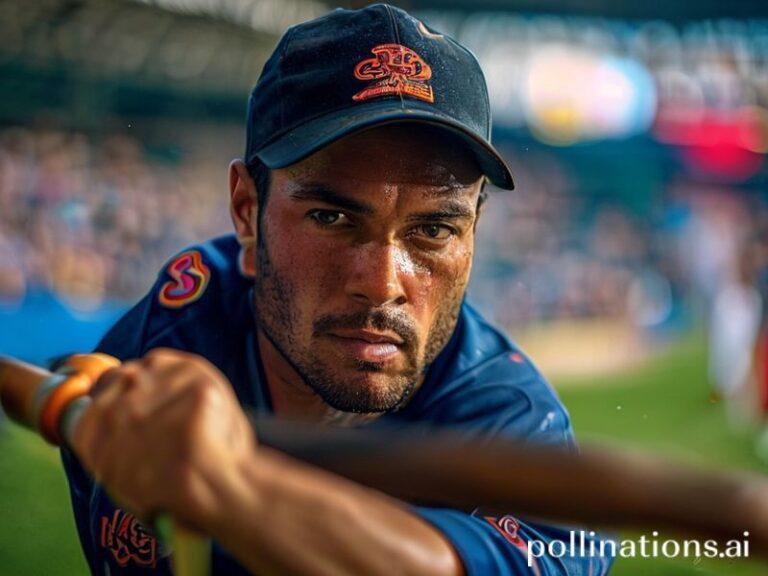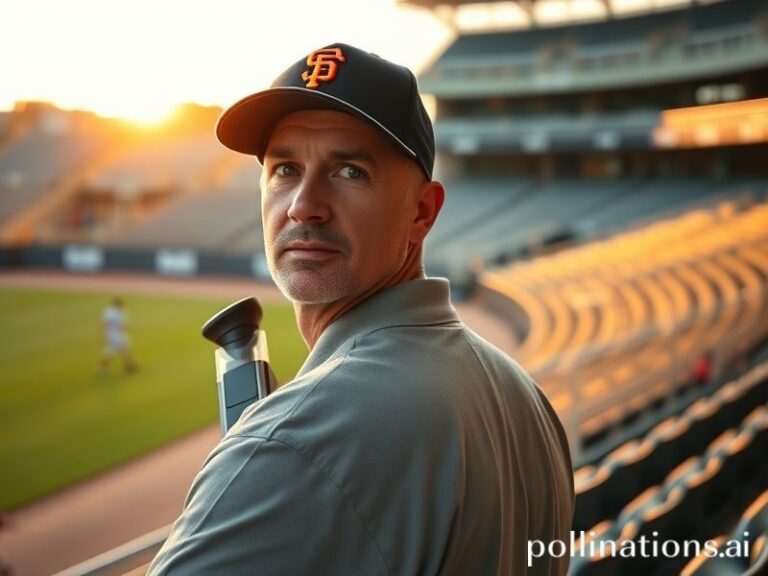Fuerteventura: Where Europe’s Guilt Gets a Tan and the Apocalypse Has a Pool Bar
Fuerteventura: The Canary in the Globalist Coal Mine
By our roving correspondent, still slightly sunburned from a mis-booked Ryanair “cultural exchange”
It begins, as all modern pilgrimages do, with a boarding pass and a vague sense of moral compromise. From Oslo to Osaka, the faithful queue for the 737 that will spirit them to Fuerteventura—an island whose name translates, aptly, to “strong fortune,” though the fortune in question is mostly Spain’s and the strength is purely ultraviolet. Here, on a wind-lashed speck 100 kilometres off the Moroccan coast, the entire planetary neurosis is laid out like a beach towel: climate anxiety, real-estate speculation, influencer redemption arcs, and the eternal hope that SPF 50 can outrun geopolitics.
The island itself is a geological shrug: 1,660 square kilometres of lava cooled into Instagrammable coves, garnished with goats and dust. But in the age of remote work, even dust can be monetised. While UN delegates in Geneva debate 1.5-degree guardrails, Fuerteventura’s shoreline is busy constructing another row of “eco-luxury” villas whose carbon footprint arrives pre-assembled from a factory in Łódź. The brochures promise “mindful barefoot luxury,” which apparently includes a private desalination plant humming discreetly behind the bougainvillea. Drink your negroni; ignore the brine discharge. The turtles will adapt—evolution has a sense of humour.
Global capital has noticed. Scandinavian pension funds, flush with the moral superiority of divesting from coal, are now ploughing cash into holiday apartments guaranteed to yield eight percent annually until the Atlantic reclaims them sometime around 2073. In the lobby of the Sheraton (built on a former salt marsh, naturally), a German asset manager explains to a Korean tech bro how fractional ownership works: “It’s like NFTs, but you can actually sleep in it.” The tech bro nods, already calculating how to turn the sunrise into a monetisable filter. Meanwhile, a British journalist asks whether sea-level rise is priced in. Everyone laughs the brittle laugh of people who have Googled “managed retreat” and didn’t like the aesthetics.
The locals—descendants of Berber fishermen and Castilian tax refugees—watch the pageant with the weary amusement of extras in someone else’s TikTok. Their grandparents fled famine; their children now serve burrata to digital nomads who complain the Wi-Fi won’t stream 4K drone footage of the very dunes eroding beneath their e-foil boards. The government in Madrid, distracted by yet another coalition crisis, has outsourced coastal policy to an algorithm trained on TripAdvisor reviews. The algorithm recommends more parking.
And yet, amid the absurdity, Fuerteventura functions as a live experiment in post-national living. In the co-working space that used to be a tuna cannery, passports are less important than bandwidth. A Ukrainian coder collaborates with a Canadian carbon-credit consultant while a Senegalese surf instructor offers mindfulness sessions in four languages. The currency is the euro, but the lingua franca is the shared delusion that geography no longer matters. When the sandstorm hits—a haboob straight from the Western Sahara—they all huddle under the same reed awning, tasting the Sahel in their teeth, equal at last before the wrath of misplaced topsoil.
Even the goats have gone cosmopolitan. Once endemic to these rocks, they now graze on kibble flown in from Rotterdam and wear tracking collars that ping a server in Dublin every time they belch methane. Climate scientists in Boulder monitor the data for clues to desertification; venture capitalists monitor it for the next ag-tech unicorn. Somewhere, a goat is trending.
As the sun sets—obligatory, unavoidable, hashtagged—one is left with the disquieting sense that Fuerteventura isn’t merely a destination but a forecast. The island is what happens when the global north’s id decides to winter in the global south, armed with yoga mats and venture funding. It is beautiful, ridiculous, and probably doomed, like everything else we’ve monetised lately. But the cocktails are strong, the Wi-Fi is free, and the apocalypse comes with a pool towel. If this is the end of the world, at least it has a decent happy hour.







